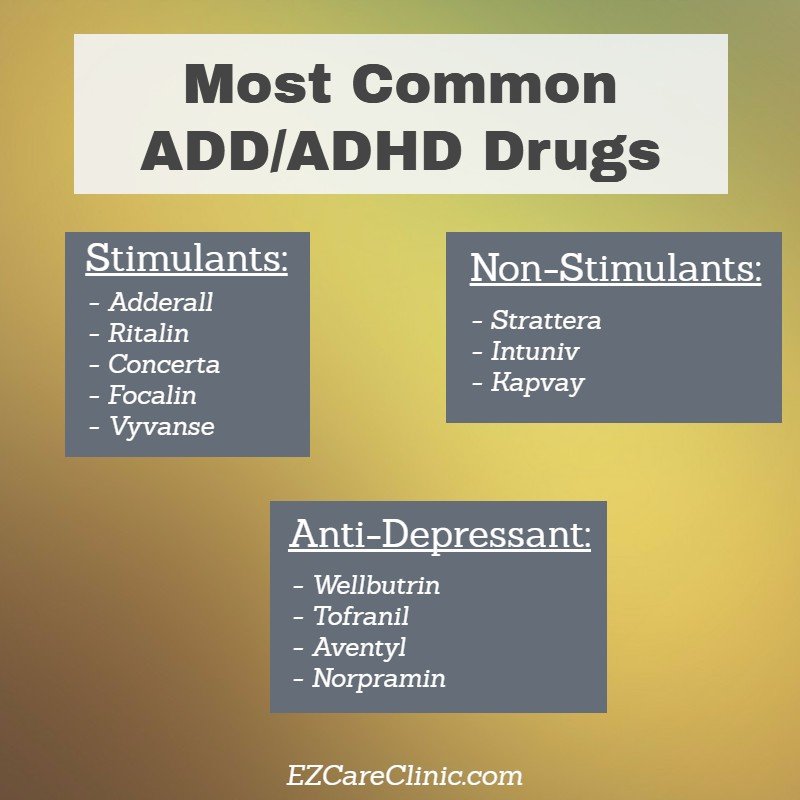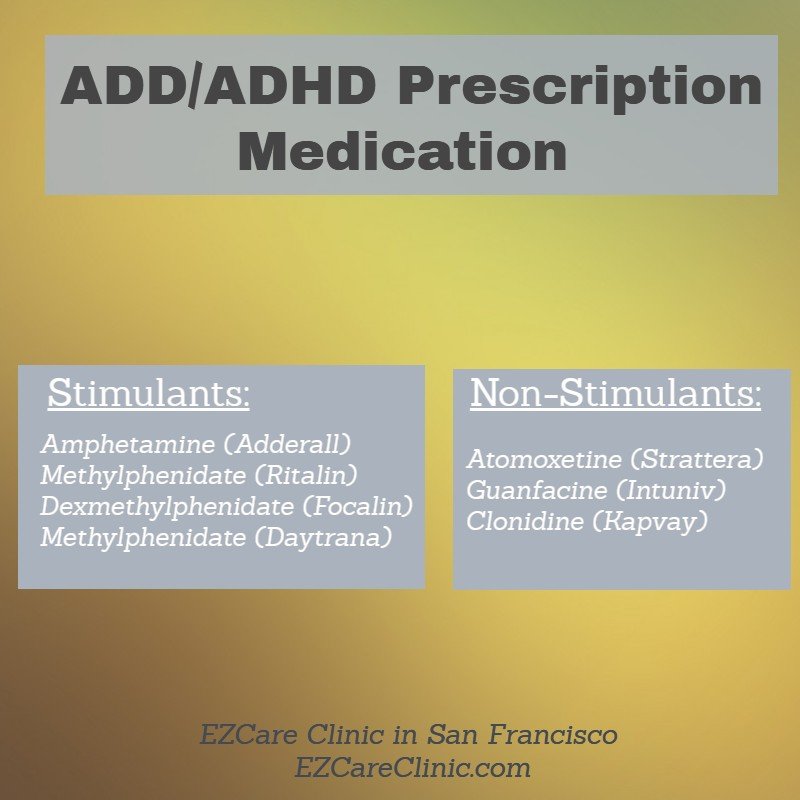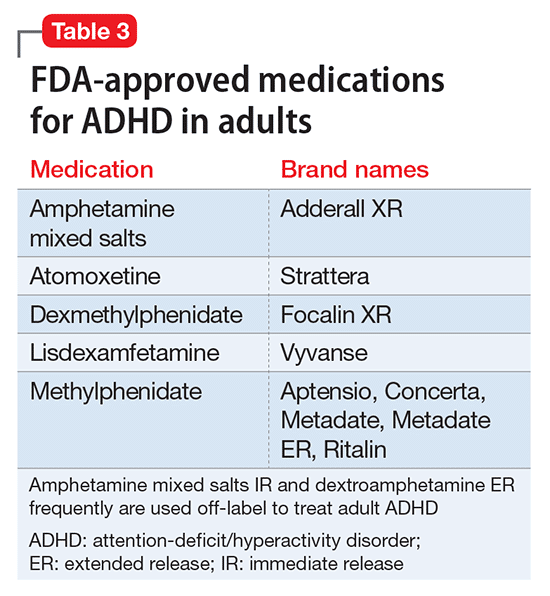Inattentive Adhd In Adults: The Symptoms Diagnosis And Treatment
Reviewed by Aaron Horn, LMFT
According to statistics from the Centers for Disease Control and Prevention , 9.4% of children and 4.4% of adults in the United States have been diagnosed with attention-deficit hyperactivity disorder .
With the prevalence of the condition, one might expect the signs of ADHD to be obvious to many people inattentive or restless children who find it difficult to wait for turns, or adults who struggle with concentration. The truth is that this is only one aspect of the disorder. Many children and adults with inattentive ADHD deviate from the stereotyped perception of what ADHD looks like they can be reserved, quiet, and shy. The symptoms are different, but they stem from the same mental health disorder and likewise require the much same interventions provided to the hyperactive form of the condition.
Understanding Inattentive ADHD
Predominantly inattentive ADHD is generally marked by trouble with concentration, forgetfulness, disorganization, and disengagement. Research suggests that inattentive ADHD is more prevalent in females than males, although males are three times as likely to be diagnosed with ADHD than females. Since inattentive ADHD symptoms can be hard to notice outwardly and since they do not fit into the conventional understanding of the disorder it is sometimes considered an underdiagnosed disorder.
Symptoms Of Inattentive ADHD
Lack Of Attention To Detail
Difficulty Concentrating
Daydreaming
Lack Of Organization
Behavioral Or Parental Therapy
For children with more severe cases of ADHD, behavioral therapy can prove beneficial. The American Academy of Pediatrics states that behavioral therapy should be the first step in treating ADHD in young children.
Sometimes called behavioral modification, this approach works on resolving specific problematic behaviors and offers solutions to help prevent them. This can also involve setting up goals and rules for the child. Because behavioral therapy and medication are most effective when used together, it can be a powerful aid in helping your child.
Parental therapy can help provide parents with the tools they need to help their child with ADHD succeed. Equipping parents with techniques and strategies for how to work around behavioral problems can help both the parent and the child in the long term.
Treatment with supplements may help improve symptoms of ADHD. These supplements include:
What Is The Difference Between Add And Adhd
In previous versions, the Diagnostic and Statistical Manual of Mental Disorders differentiated ADD from ADHD.
People with primarily inattentive symptoms were diagnosed with ADD, and those with predominantly hyperactive/impulsive symptoms were diagnosed with ADHD. However, many people were diagnosed with both ADD and ADHD, and both presentations have similar treatment protocols.
Don’t Miss: What To Do With Autistic Adults
Behavior Therapy Including Training For Parents
ADHD affects not only a childs ability to pay attention or sit still at school, it also affects relationships with family and other children. Children with ADHD often show behaviors that can be very disruptive to others. Behavior therapy is a treatment option that can help reduce these behaviors it is often helpful to start behavior therapy as soon as a diagnosis is made.
The goals of behavior therapy are to learn or strengthen positive behaviors and eliminate unwanted or problem behaviors. Behavior therapy for ADHD can include
These approaches can also be used together. For children who attend early childhood programs, it is usually most effective if parents and educators work together to help the child.
Children younger than 6 years of age
For young children with ADHD, behavior therapy is an important first step before trying medication because:
- Parent training in behavior management gives parents the skills and strategies to help their child.
- Parent training in behavior management has been shown to work as well as medication for ADHD in young children.
- Young children have more side effects from ADHD medications than older children.
- The long-term effects of ADHD medications on young children have not been well-studied.
School-age children and adolescents
- Parent training in behavior management
- Behavioral interventions in the classroom
- Peer interventions that focus on behavior and
- Organizational skills training.
Clinical Effects Of Stimulants

Stimulants have shown a high behavioral efficacy in numerous randomized controlled trials conducted since the 1960s, with improvement noted for 65%75% of patients in all age groups . Stimulants effectively alleviate the symptoms of ADHD, including poor attention span, distractibility, impulsive behavior, hyperactivity, and restlessness. Stimulants also improve vigilance, cognition, reaction time, response inhibition, and short-term memory . Methylphenidate in clinical doses improves spatial working memory, set-shifting, and other prefrontal cortex cognitive functions in healthy individuals and in children with ADHD . Stimulant medications are also associated with fewer errors on a driving simulator in teens and adults with ADHD. Barkley and colleagues demonstrated that methylphenidate may have a beneficial effect on some aspects of driving, for example less steering variability, slower driving speed, greater use of turn signals, and a fewer impulsive responses .
Read Also: Is Dr Shaun Murphy Really Autistic
Diagnostic Criteria For Hyperactivity And Impulsivity:
Central Nervous System Stimulants
Central nervous system stimulants are the most widely prescribed form of ADHD medication. Stimulant medication works by increasing dopamine and norepinephrine, two chemicals in the brain responsible for attention, action, reward, learning, and memory processes to name only a few.
For adults with ADHD, central nervous system stimulants produce a calming effect, resulting in reduced hyperactivity and improved attention span. As a result, concentration and focus are generally improved. This calming effect may seem paradoxical for stimulant medication, but is though to be linked to the lack of dopamine in the brains of adults with ADHD.
Common CNS stimulants used to treat ADHD include:
Don’t Miss: How Is Adhd Diagnosed
Life Coaching For Adhd
Like having a mentor in the workplace, some people with ADHD benefit from having a coach for everyday life. Coaching is generally a supplement to more formal psychological counseling. The mentor helps the patient put newly learned skills into practice in real-life situations, whether organizing the home or planning a trip.
Adult Adhd And Marriage
ADHD can sabotage marriage and other relationships. The condition makes it difficult to remember social commitments, birthdays, or anniversaries, finish household chores, and pay bills on time. Adults with ADHD may lose their tempers easily or engage in reckless behavior. This leads to higher rates of separation and divorce.
Recommended Reading: Adhd Ruined My Life
Physician Satisfaction And Preferences Regarding Current Treatment Options
A survey of physicians level of satisfaction with available treatments for ADHD in adults and potential areas for improvement in this regard revealed that 19.8% were very dissatisfied, moderately dissatisfied, or neither satisfied nor dissatisfied with current therapeutic options . The main improvements suggested by physicians were lower risk of abuse , longer duration of effect , and fewer ADHD/treatment-related complications .
Fig. 4
Treatment For Adult Adhd
ADHD is a disease that affects adults. Adults with ADHD may not have been diagnosed when they were children, or their symptoms may be different from those of a child. In order to get a proper diagnosis, people should be aware of the symptoms, understand what causes them, and know how to find a specialist. ADHD can affect people in several ways depending on the severity of the disorder and how it affects their lives. Some adults with ADHD receive treatment and learn to better cope with their disorder, while others continue to suffer from its effects. In addition to affecting adults daily lives, ADHD can also cause many other problems including depression and anxiety.
The most common cause of ADHD in adults is a brain injury or damage from birth complications that affect certain areas in their prefrontal cortex. Other less common causes include physical diseases and mental disorders .
ADHD is usually diagnosed through the use of several tests. Usually, these tests consist of rating scales that ask about ADHD symptoms in various ways. There are also neuropsychological assessments that measure brain functions to determine whether or not a person suffers from ADHD.
Treatment for ADHD is also available to adults, but it is different. ADHD typically becomes an adult-onset condition, so the symptoms are different. Treatment typically includes medications, psychotherapy or cognitive behavioral therapy, or a combination of these treatments. Treatment for ADHD in adults can include:
Recommended Reading: Is Autism A Learning Disorder
How Is Attention Deficit Hyperactivity Disorder Inattentive Type In Adults Treated
Although there is no cure for the disorder, it can be successfully treated. There are several different approaches for treating adults, but generally some combination of medication and behavioral therapy yields the best results.
Medications. Prescription drugs that are used to treat ADHD in children usually are effective for most adults with the predominantly inattentive form of ADHD. However, the dosage and frequency of medications may have to be adjusted early during the course of treatment. It is important to match the needs of the person with ADHD with the characteristics of the drug.
The major classes of prescription medications that are prescribed for ADHD are psychostimulants, antidepressants, and nonstimulant drugs. These treatments affect the neurotransmitters that send signals to brain cells.
Coaching
Coaching is a relatively new approach that has become more popular over the past few years. Coaches help people with ADHD handle the challenges of daily life by providing feedback, recommendations and encouragement, and directing the individual to attend to their own solutions to problems. They also offer practical solutions to address certain issues–such as time management and organization–and help their clients achieve goals.
S Of Treating Adhd In Adults

Whether diagnosed in childhood or in adulthood, there are a range of approached to treat attention deficit hyperactivity disorder. ADHD medication can help the central nervous system regulate itself and alleviate some ADHD symptoms, while cognitive behavioural therapy can help adults with ADHD to create coping mechanisms and alter patterns of behaviour. The best treatment can often include a combination of different approaches.
Read Also: How To Decrease Scripting In Autism
Assessment And Diagnosis Of Adult Adhd
There are generally three routes of entry into assessment for adult ADHD . Firstly, there are children who transition into adult services. Secondly, there are adults who receive treatment for mental health conditions that are co-morbid or whose symptoms overlap with ADHD. Here, symptoms of ADHD are often unmasked by the adequate treatment of the pre-existing condition. Symptoms of ADHD can be misattributed to chaotic lifestyle or treatment resistance of the pre-existing condition. Thirdly, there are patients whose ADHD has never been diagnosed in childhood, but who present for the first time to services with core or associated symptoms of ADHD .
Figure 2
Adhd Treatment For Adults
When it comes to treatment for any mental health diagnosis, the individual’s unique needs are prioritized. Talk to the providers on your treatment team about your concerns, questions, and preferences to determine what approach best fits you, and ask about the different options available to you.
Typically, ADHD treatment options for adults include medication, therapy, skill building, and appropriate accommodations.
You May Like: Is Autism Diagnosed Too Often
Where Can I Find More Information On Adhd
The Centers for Disease Control and Prevention within the U.S. Department of Health and Human Services is the nations leading health promotion, prevention, and preparedness agency. For more information about ADHD symptoms, diagnosis, and treatment options, as well as additional resources for families and providers, visit CDCs ADHD webpage.
Clinical Monitoring During Stimulant Treatment
Once an effective and well-tolerated dose of stimulant medications is achieved, routine clinical monitoring is needed. Regular clinical monitoring with monthly appointments in the beginning of treatment and after that clinical monitoring at least every three months has a great importance in terms of dose adjustments based on residual symptoms and tolerability. During these visits, ADHD symptoms, comorbid conditions, side effects of medication, heart rate, blood pressure, and weight should be monitored, as well as patients compliance. The findings of the MTA study strongly suggest that active and intensive monitoring of medication improves treatment outcome . Many patients are prone to stop taking medication when they do not have regular follow-up appointment.
It is recommended that a reassessment with a trial off medication occurs once a year to assess the need for medication and appropriateness of the dose . Planned drug holidays may also be helpful in preventing tolerance to the medication.
You May Like: How Early Can You Spot Autism
Ethics Approval And Consent To Participate
This retrospective study was conducted in accordance with the applicable ethical regulations and was approved by the Western Institutional Review BoardCopernicus Group Institutional Review Board. The Institutional Review Board further waived informed consent requirement as the data collected did not include any patient-identifying information.
Adult Adhd Signs And Symptoms
The signs of ADHD in adults may be similar to childhood ADHD. But some of these symptoms, especially hyperactivity, may decrease over time, making diagnosis in adults more difficult.
Symptoms in adults tend to be more subtle. As a result, ADHD can be harder to spot in adults than in children.
Its important to note that many of the symptoms of ADHD can be misinterpreted as personality flaws or character traits in adults. This can lead to internalizing a lot of negative feedback and trying to change things you really cant control without the proper treatment or learning tools.
Symptoms of ADHD in adults can be divided into two main categories:
You May Like: How Is It Like To Be Autistic
Specialized Therapy For Adult Adhd
Whereas medications treat ADHD from the inside out, specialized therapy for ADHD works from the outside in by helping clients learn skills and structure their environments to reduce the negative impact of ADHD on their lives.
In cognitive behavioral therapy, clients work with a therapist to understand the interaction between their thoughts, feelings and actions and learn skills to cope with problems and meet important goals. There are different styles of cognitive behavioral therapy based on the problem that the client wants to work on. These treatments are evidence-based, while still tailored to each individual client.
Over the past two decades, researchers have begun to develop and test cognitive behavioral therapies specifically for adults with ADHD.
These specialized therapies help clients integrate organization and time-management skills into their lives. They also typically help people incorporate strategies to increase and maintain motivation to complete tasks and combat procrastination.
Most cognitive behavioral therapies teach clients to become aware of the effects of their thought patterns on emotions and actions so that nonhelpful thoughts can have less influence. Whereas therapy for depression and anxiety tends to focus on overly negative thinking, ADHD therapy sometimes targets overly positive or overly optimistic thinking that can sometimes get clients in trouble.
Adhd Symptoms In Adults

Adult ADHD symptoms include difficulty with time management, memory, organization, emotional regulation. The symptoms of ADHD in childhood and in adulthood are similar, however the intensity of certain symptoms especially hyperactivity is decreases over time for many people. Adult ADHD symptoms include:
Don’t Miss: How To Calm An Autistic Child
Option : Adhd Coaching
A relatively new complementary ADHD treatment thats gained popularity is ADHD coaching. An ADHD coach is someone who helps you make lifestyle changes to better manage your ADHD symptoms. They can help you implement the behavioral techniques that we listed above, including things like time management and organization.
Coaches arent licensed therapists, so they dont usually deal with emotional or psychological issues.
Pros of ADHD coaching:
-
A coach can make it easier to implement behavioral management techniques for ADHD .
-
ADHD coaches are a great option for when youre looking to take action and make changes in your life.
-
An ADHD coach can help you meet other personal and professional goals in your life.
Cons of ADHD coaching:
-
There is currently no regulating body to license or certify ADHD coaches. That means that, legally, anyone can present themselves as an ADHD coach, and it can be tricky to figure out which coach can actually help you.
-
There is limited scientific research on the effectiveness of ADHD coaching.
-
ADHD coaches can cost up to $1500 a month and are typically not covered by insurance.
-
Unless theyre also licensed therapists, coaches cant help you heal from deeper emotional issues like depression or trauma.
General Principles Of Pharmacotherapy
Pharmacological management should be initiated only by a healthcare professional with expertise in the diagnosis and management of ADHD. A routine blood test or ECG is not necessary prior to starting medication. Where a previous cardiac condition or a family history of sudden death is present, an ECG and cardiology opinion may be warranted. Heart rate, blood pressure and weight should be measured before commencing medication and monitored every six months. If there is sustained tachycardia or a sustained increase in blood pressure , a specialist referral is warranted. The need for medication should be reviewed at least once a year. After titration of medication, prescribing and monitoring can be carried out under a shared care protocol arrangement.
Also Check: What Is The Difference Between High And Low Functioning Autism